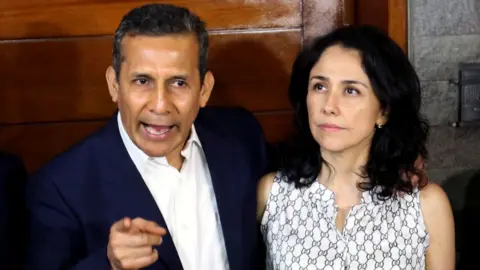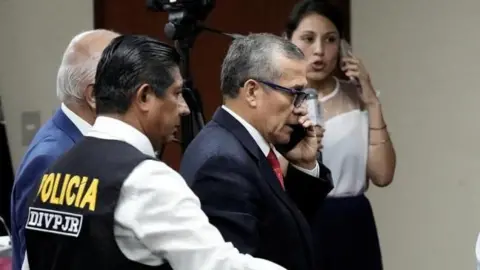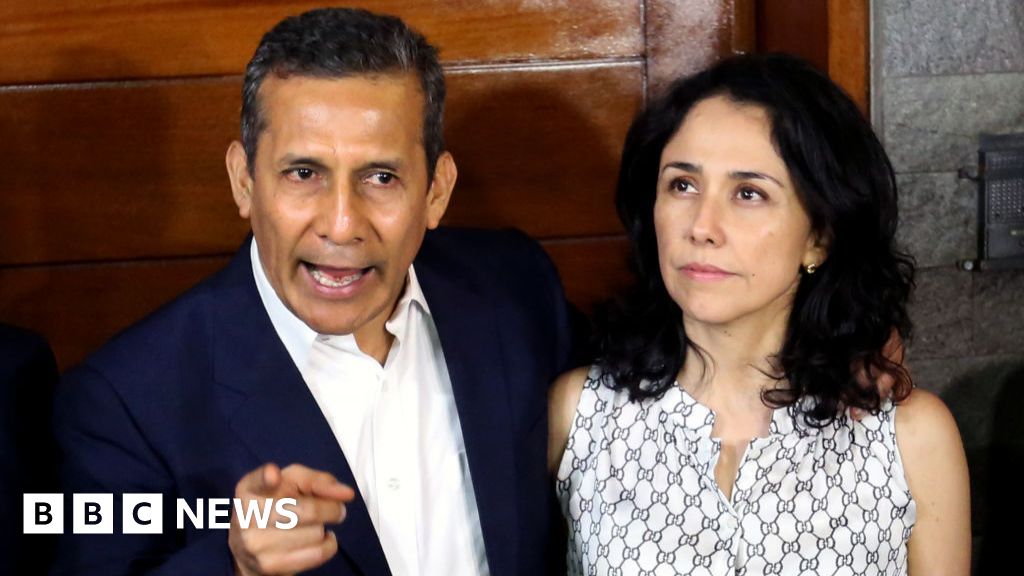BBC News

Getty Images
Ollanta Humala, the former president of Peru, has been convicted of money laundering and sentenced to 15 years in prison.
A Lima court determined that he accepted illicit funds from Hugo Chávez, Venezuela’s president at the time, and from the Brazilian construction giant Odebrecht, to finance his election campaigns in 2006 and 2011.
Humala’s lawyer announced intentions to appeal the verdict.
Nadine Heredia, Humala’s wife, was also convicted of money laundering and awarded a 15-year sentence, but she has been permitted safe passage to Brazil after requesting asylum at the Brazilian embassy.
Unlike her husband, she was absent during the court proceedings, having entered the embassy with their son to avoid an arrest warrant.
Brazil has offered asylum to Heredia, and the Peruvian government has committed to respecting the 1954 asylum convention, allowing her and her son safe passage.
According to Brazil’s foreign ministry, Heredia has arrived in Brasília and will proceed to São Paulo as per her attorney’s statement.
Meanwhile, the 62-year-old Humala was taken to Barbadillo prison, where former presidents Alejandro Toledo and Pedro Castillo are already incarcerated.
Humala is the first of four former Peruvian presidents under investigation related to the Odebrecht scandal.
Prosecutors revealed that Humala and Heredia received $3 million in illegal donations from Odebrecht to fund his 2011 campaign, along with $200,000 from Hugo Chávez for his 2006 campaign. They have consistently claimed they are victims of political persecution.
Humala’s attorney criticized the 15-year sentence as “excessive,” arguing that prosecutors sought 20 years for Humala and 25 and a half years for Heredia.

Reuters
Who is Ollanta Humala?
Ollanta Humala is a former military officer known for combating Maoist Shining Path insurgents. He gained national attention in 2000 with a brief military uprising against then-president Alberto Fujimori.
He ran for president in 2006, inspired by Venezuela’s Chávez, but was defeated by Alan García, who cautioned voters against a potential leftist turn for Peru.
In 2011, Humala secured a victory by adopting a moderate stance that mirrored the policies of Brazil’s former president, Luiz Inácio Lula da Silva, defeating Keiko Fujimori.
However, his presidency faced challenges from civil unrest, eroding his popularity and support in Congress.
His legal troubles began after finishing his term in 2016 when Odebrecht confessed to bribing officials across Latin America, including allegations against Humala and his wife.
They faced pre-trial detention, were released after a year, but ongoing investigations eventually led to their convictions.




